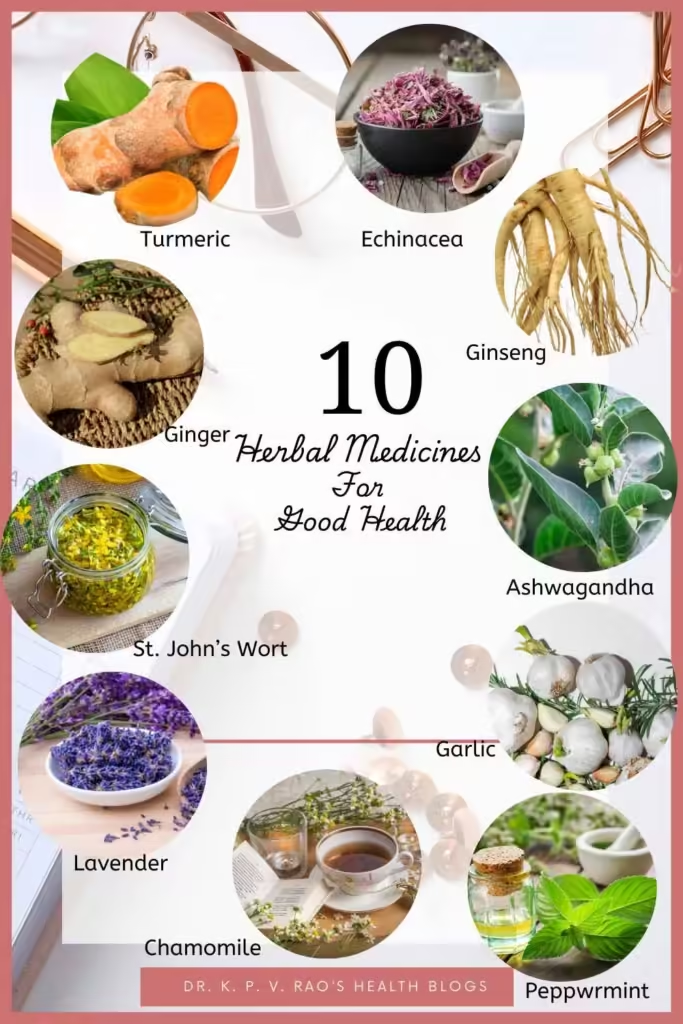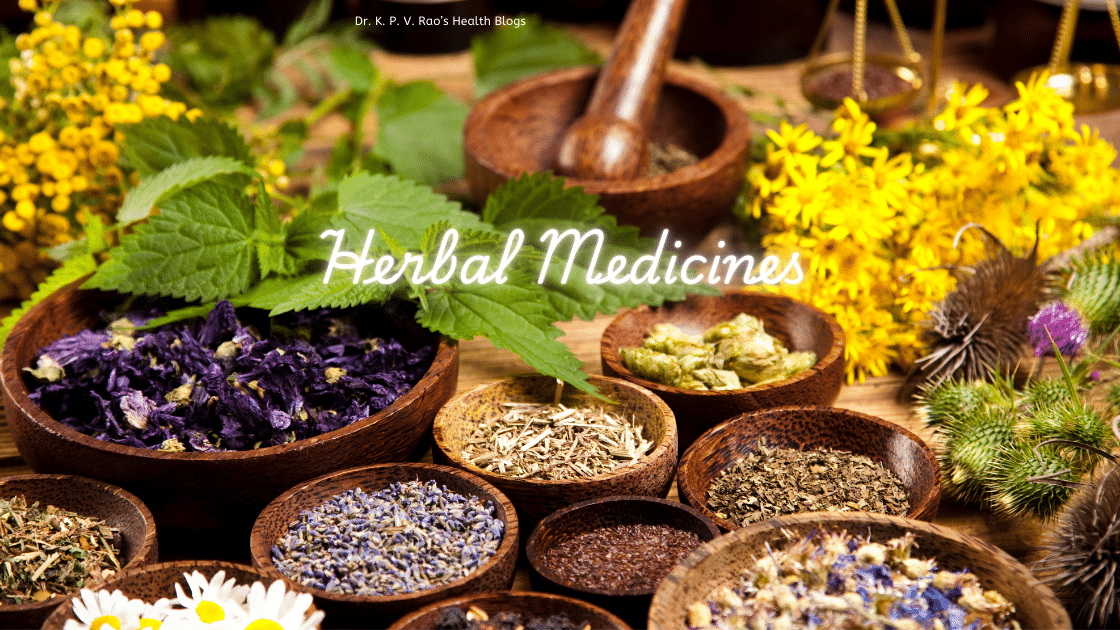….. and Improve Your Wellbeing
Listen to this article- Scroll down as you listen
Introduction to Herbal Medicines
Hello friends, you may be wondering why a doctor trained in conventional allopathic medicines is writing about Herbal Medicines. Well, there are a few things about me that I would like to share with you today. Here is a list of things I like about being a doctor-
- I like to learn about new things in the field of medicine;
- I like to try new yet safe medicines to relieve the ailments in my patients. And that includes trying different modality of medicines like ayurvedic, homeopathy, etc., and I do this after thorough research of the medication. For example, I sometimes suggest and prescribe ayurvedic treatment for osteoarthritis and a homeopathic medicine to get rid of kidney stones.
- I prefer using some ayurvedic remedies to prevent certain ailments. {I am currently taking some to relieve joint pains and backache; I have also used homeopathy medicines to get rid of kidney stones in the past}.
So, there you are – I wrote this piece keeping you in mind and the benefits of a few herbal medicines that I got interested in.
Just as a chef crafts a recipe using fresh ingredients from the pantry, I wrote this piece highlighting the benefits of herbal medicines that you can often find right in your kitchen.
So let’s begin-
Definition
Herbal medicines, often referred to as phytotherapy, involve using plant-derived substances or componds for medicinal purposes.
A brief history about these medicines-
To begin with, I would like to point out that this practice is not a modern phenomenon; it dates back thousands of years, with historical records showing its use in ancient civilizations such as Egypt, Greece, and China.
In these cultures, herbs were revered not just for their medicinal properties but also for their spiritual significance.
Traditionally, herbal remedies were utilized by healers who combined knowledge of botany (plant science) with an understanding of human anatomy and ailments.
Over time, these practices evolved into structured systems of medicine, such as Traditional Chinese Medicine (TCM) and Ayurveda in India, each with its own unique approaches to health and wellness.
Common Misconceptions
Despite gaining popularity, herbal medicine is often surrounded by misconceptions. Many people believe that because herbal remedies are natural, they are inherently safe and free from side effects.
However, this is not always true; natural does not mean it is entirely safe. Users must be cautious and conduct thorough research before taking them. Here is where this article comes in- as it is evidence based.
Another common misunderstanding is that herbal medicine can replace modern pharmaceuticals entirely. While some herbs can serve as effective treatments, they can complement, not substitute, traditional medical care.
It’s essential to approach herbal remedies with an informed mindset to harness their full potential.
Why I sometimes prefer Herbal Medicine-it’s Benefits
Natural Healing Properties
One of the most compelling advantages of herbal medicine is its natural healing properties.
Herbs often contain multiple active compounds that can work synergistically to promote healing.
For instance, turmeric contains curcumin, a powerful anti-inflammatory agent that has been linked to reduced inflammation and improved joint health.
Moreover, many herbal remedies can address the root cause of a health issue rather than just alleviating symptoms. This characteristic makes them particularly appealing for individuals seeking a more holistic approach to their wellbeing.
Holistic Approach
Herbal medicine embodies a holistic approach to health, meaning it focuses on treating the whole person rather than just the symptoms of a disease.
Herbal medicines practitioners often consider emotional, spiritual, and physical aspects of health, advocating for lifestyle changes alongside herbal treatments. Such an integrated approach can lead to more sustainable health improvements.
Furthermore, herbal medicine encourages self-care and personal responsibility in managing health. Patients are empowered to take active roles in their treatment journeys, promoting long-term wellness rather than temporary relief.
So, what are the top herbal medicines we are going to discuss today? Let’s find out-
Top 10 Herbal Medicines

1. Turmeric
Turmeric is a spice known for its vibrant yellow color and potential health benefits. It contains an active compound called curcumin, which has anti-inflammatory and antioxidant properties. Incorporating turmeric into meals or taking curcumin supplements may offer various health advantages.
It has been shown to support joint health and alleviate symptoms of osteoarthritis.
Incorporating turmeric into your diet can be as simple as adding it to soups, stews, or smoothies.
It can also be taken in supplement form for more concentrated benefits. Some medicines for osteoarthritis have a combination that contain curcumin, the active ingredient in turmeric.
2. Ginger
It has the power to reduce inflammatoin that can also aid in pain relief, making it beneficial for those suffering from chronic painful conditions, such as arthritis.
Ginger is also commonly used to overcome nausea and aid digestion. It may also have anti-inflammatory properties and help reduce muscle and joint pain.
Ginger can be consumed in various forms, including fresh, powdered, or as a tea infusion, or in supplement form, offering versatility in how it can be incorporated into daily routines.
3. Echinacea
Echinacea is often used to support the immune system and help combat the common cold. It may help shorten the duration and severity of cold symptoms when taken at the first sign of illness.
It is believed to enhance the activity of white blood cells, which play a crucial role in fighting infections.
Echinacea supplements are widely available in various forms, including teas and tinctures, which can be a supportive addition during the cold season.
4. Ginseng
Ginseng has long been revered in Traditional Chinese Medicine for its ability to enhance energy levels and improve mental clarity. It is also believed to help regulate blood sugar levels, which can benefit people with diabetes.
This adaptogen can be consumed as a tea or in capsule form, making it easy to integrate into daily health routines.
5. Ashwagandha
Ashwagandha is an adaptogenic herb known for its stress-relieving effects. It helps the body adapt to stress and can promote a sense of calm and well-being. Additionally, it may improve sleep quality and boost overall energy levels.
Often available in powder or capsule form, ashwagandha can be added to smoothies or taken as a supplement.
6. Garlic
Garlic is not only a culinary staple but also a powerful medicinal herb. It is recognized for its cardiovascular benefits, including lowering blood pressure and cholesterol levels. Garlic also has antimicrobial properties, aiding in the prevention of infections.
Fresh garlic can be easily incorporated into meals, while supplements are available for those seeking concentrated benefits.
7. Peppermint
Peppermint is widely used to alleviate digestive issues and relieve headaches. Its soothing properties can help reduce bloating and indigestion, while the menthol in peppermint provides a cooling effect that can ease tension headaches.
Peppermint tea is a popular way to enjoy its benefits, and the essential oil can be used aromatically or topically.
8. Chamomile
Chamomile is known for its calming effects, making it an excellent choice for promoting relaxation and aiding sleep. Additionally, it can help soothe digestive issues and reduce anxiety.
Used as Green tea, it is rich in antioxidants and may have numerous health benefits.
It has been associated with improved brain function, weight management, and a reduced risk of certain diseases.
Green tea made of chamomile can be enjoyed hot or cold, and there are also green tea extract supplements available.
Chamomile tea is a comforting way to experience its benefits, particularly before bedtime.
Useful Resource: Healthline on Chamomile
9. Lavender
Lavender is famed for its aromatic properties, often used in aromatherapy to promote relaxation and reduce anxiety. Its potential benefits also include improved sleep quality and reduced symptoms of depression.
Lavender is renowned for its calming and soothing properties. Its pleasant aroma can help promote relaxation and relieve stress.
Lavender essential oil is commonly used in aromatherapy and can be applied topically for its potential benefits. Just sprinke a few drops on your pillow to get a good night’s sleep and rest.
Essential oils can be diffused, added to baths, or used in topical applications, making lavender easy to integrate into daily wellness practices.
10. St. John’s Wort
St. John’s Wort is recognized for its potential antidepressant effects, often used to alleviate mild to moderate depression. It is believed to work by increasing levels of certain neurotransmitters in the brain.
Available in capsules, teas, and tinctures, St. John’s Wort can be a supportive herb for those experiencing mood fluctuations.
Conclusion
I hope this article has provided you with some insights of some natural herbs that are used in treating certain diseases/conditions. Used with conventional medicines, herbal medicines can boost health by improving pains and aches of many ailments.
Disclaimer:
This article is for informational purposes only. It is not intended to be a substitute for professional medical advice, diagnosis, or treatment. Always seek the advice of your physician or another qualified health provider with any questions you may have regarding a medical condition.
Final Words
As we go ahead, I will be sharing my experiences with certain herbal medicines that I am using in my day to day practice. Stay tuned for an update…
Adios.

